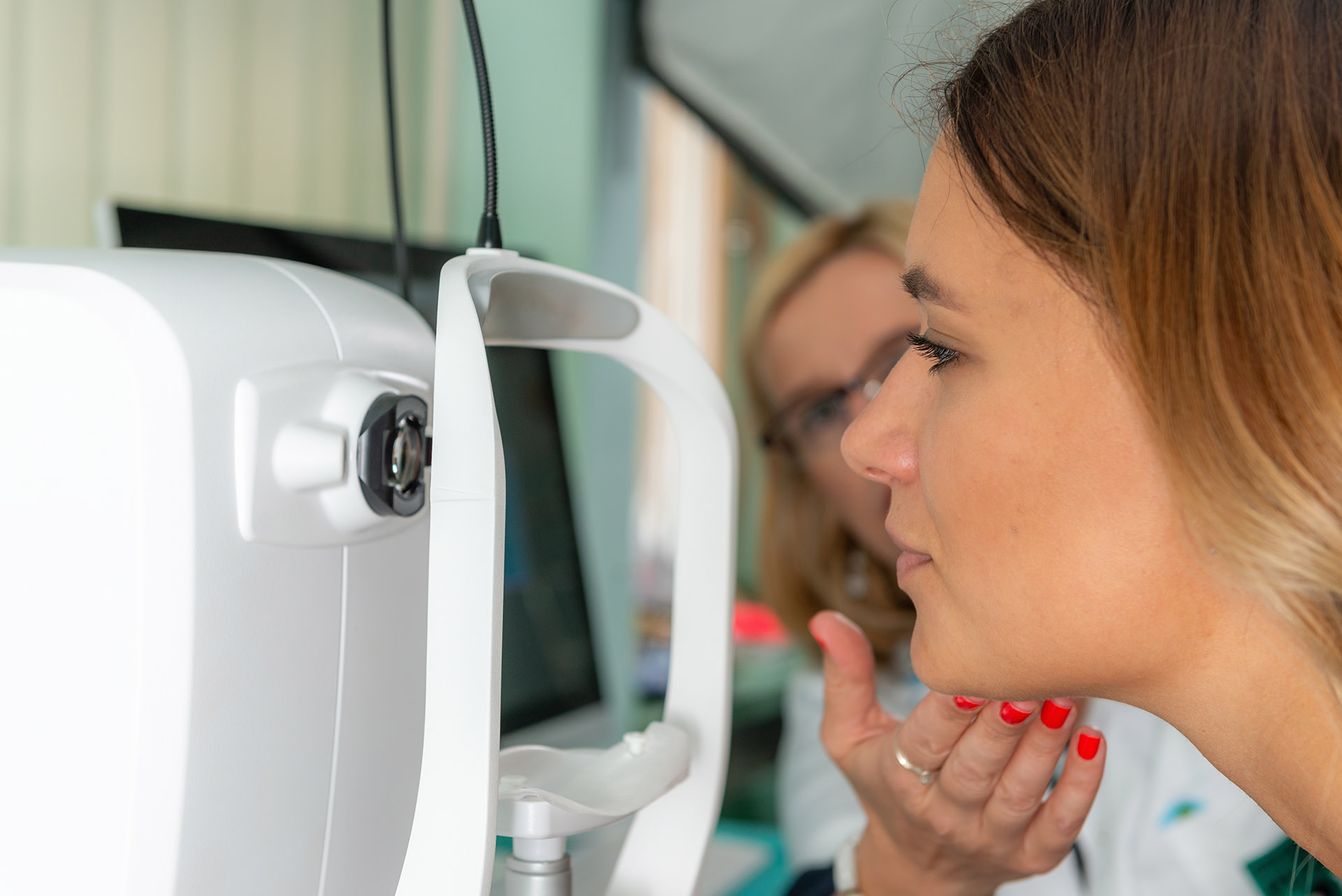At Shoreline Vision, we believe that everyone deserves the absolute best in eye care. We are proud to care for the vision and eye health of patients in the West Michigan Lakeshore area. Comprehensive eye exams are important to determine your need for eyeglasses or contact lenses and to maintain the health of your eyes.


Vision and eye health changes can occur without you noticing. The earlier an eye problem is detected and treated, the more likely treatment will result in a successful outcome.
During a complete eye exam, eye diseases or other abnormalities that are not yet causing symptoms can be detected. We can seamlessly connect you with specialists for continuing care.
In addition to complete eye exams, our practice offers a wide range of services and specialties to help maintain or improve your vision and eye health. Schedule a complete exam online now or call (231) 739-9009 to schedule your appointment with Shoreline Vision today.

A complete eye exam includes a thorough examination of your eyes and typically takes less than an hour to complete. Your eye doctor will use a variety of tests to evaluate the health of your eyes and check your vision. Not all tests are required for each patient. Tests that may be included in your comprehensive eye exam:
A regular eye exam is essential for everyone. Serious medical conditions, such as cancer, stroke, high cholesterol, diabetes, and high blood pressure can be detected through an eye exam, allowing patients to seek treatment early. An eye exam is also your opportunity to ask questions about your vision or eye health and learn more about your options for vision correction or any necessary eye care treatments.

Everyone should have routine eye exams. The Academy of Ophthalmology recommends that routine eye exams are essential, even if your eyes and vision seem fine. From childhood vision screenings to your senior years, it’s important to detect eye diseases early. Early treatment can help preserve your vision.
Based on your individual needs, your optometrist or ophthalmologist will advise you on how often an eye exam is needed. If you have an infection, injury, or eye pain, or you notice sudden floaters, flashes, or patterns of light, see an eye doctor immediately. Also, schedule an eye exam now if you have an eye disease or risk factors such as:

Most vision insurance plans cover routine eye exams, including a refraction, which is the test done by your eye doctor to provide your eyeglass or contact lens prescription.
Most medical insurance plans cover medical eye exams relating to any eye health issues. This may include annual diabetic eye exams or treatments for eye diseases such as glaucoma, cataracts or macular degeneration. A refraction — the test done by your eye doctor to determine if corrective lenses will help you see better — is usually considered a non-covered benefit under medical insurance. Patients will pay separately for a refraction, when needed.
Dilation is an important part of a complete eye exam. Dilation causes your pupils to widen and allows your eye care provider to better view the retina at the back of your eye. This allows for a more complete diagnosis of the eye, including the presence of any diseases or conditions, including diabetes, high blood pressure, macular degeneration, retinal detachment, or glaucoma.
Eye dilation can make your vision blurry and more sensitive to light. You may want someone to drive you home after a dilated eye exam. It can take between four to six hours for your pupils to return to their normal size.
The frequency of eye exams depends on your age and overall eye health. Your eye doctor will provide details about your specific vision and eye health needs. As a general guideline:
Yes, there are several eye conditions, such as glaucoma, that do not have any initial symptoms and require early detection to prevent vision loss. Regular eye exams also provide a baseline for your eye doctor to monitor your eye health and vision.
Steps that you can take to maintain your eye health include: